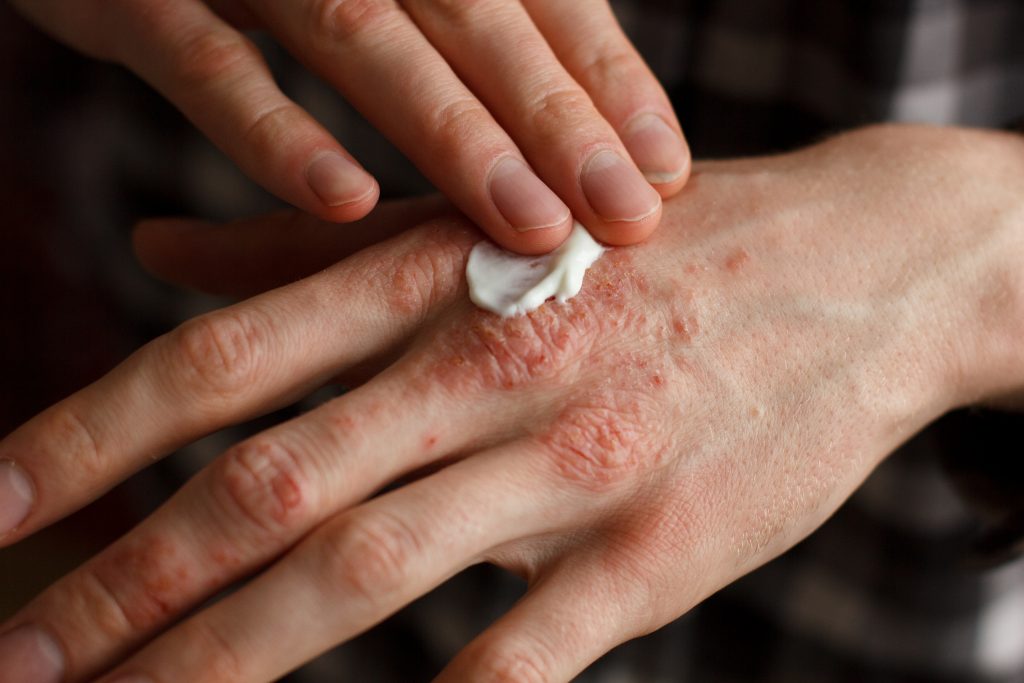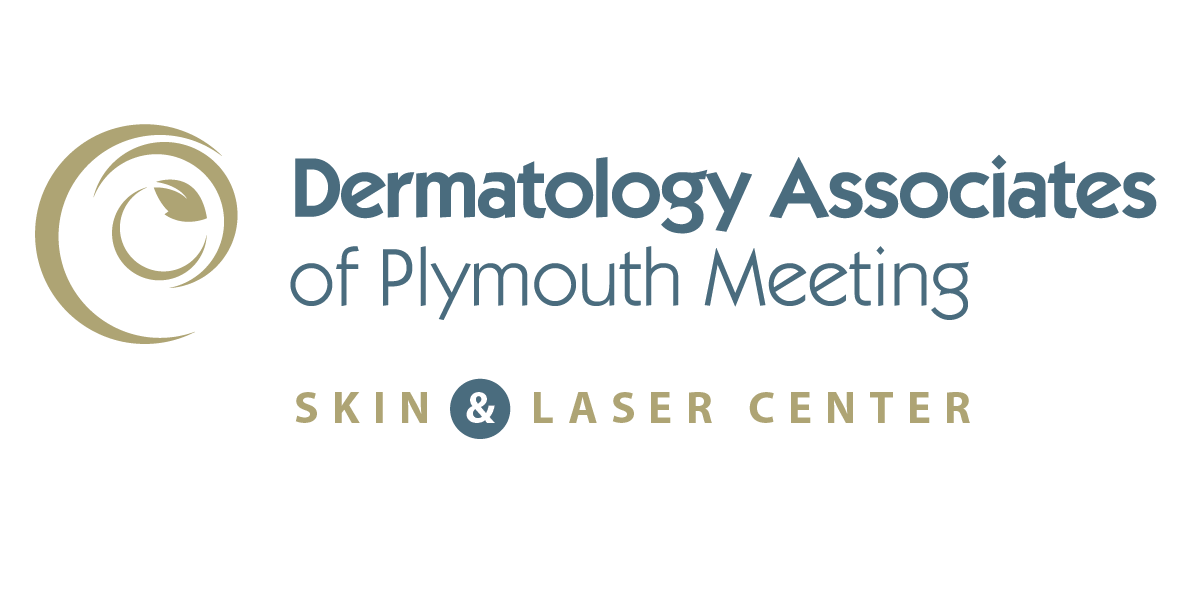Psoriasis Treatment from a Dermatologist

Psoriasis is a common and often stubborn skin condition associated with inflamed, itchy, red and scaly patches of skin. These patches can appear anywhere on the skin but most commonly show up on the scalp, face, elbows, knees, lower back, palms and foot soles. Most types of psoriasis don’t pose major health concerns, but this condition can cause severe discomfort as well as hinder one’s self-esteem. As such, those suffering from psoriasis should seek help from a dermatologist as soon as possible to receive the right treatment.
Dermatology Associates of Plymouth Meeting is well-versed in the many types of psoriasis and the best treatments for this condition.
Types of Psoriasis
Psoriasis comes in many forms. Additionally, symptoms commonly associated with psoriasis may result from other skin conditions, such as eczema, seborrheic dermatitis and even skin cancer. Different kinds of psoriasis include:
- Plaque Psoriasis – The most common type of psoriasis that starts with small red bumps and may grow larger, forming thick, silvery scales.
- Guttate Psoriasis – Similar to plaque psoriasis and typically impacts the torso or “trunk” of the body. Lesions appear more rounded or coin-shaped than plaque psoriasis.
- Nail Psoriasis – A localized form of psoriasis that can be difficult to treat. It affects the nails by causing discoloration and small pits in the nail’s surface, leading them to loosen, thicken or crumble.
- Inverse Psoriasis – Another localized form of psoriasis in the groin area, under the breasts or in the armpits (frequently mistaken for fungal infection).
- Pustular Psoriasis – Identifiable by raised white bumps or “pustules” that contain noninfectious puss. Symptoms may include fever and chills.
- Erythrodermic Psoriasis – The least common form of psoriasis that may pose other health risks, especially to individuals with cardiac disease. Erythrodermic psoriasis can be life-threatening and may increase the risk of pneumonia and congestive heart failure in some individuals.
How to Diagnose Psoriasis
Because there are so many types of psoriasis – and because they can be mistaken for other ailments – it’s important to seek treatment from a dermatologist who can diagnose your specific type of psoriasis (or other skin condition) and recommend the right treatment plan for you. Other doctors, such as primary care physicians or rheumatologists, may be able to diagnose and treat psoriasis. Still, dermatologists are specifically trained in the diagnosis and treatment of skin conditions, including psoriasis in all its forms.
The providers at Dermatology Associates of Plymouth Meeting offer vast experience in examining patients’ skin and properly diagnosing conditions like psoriasis. Our diagnosis process begins with a thorough skin exam and symptom assessment. Based on visual cues, patient history and other underlying factors (e.g., stress, medications and other conditions), we determine the exact type of psoriasis. From there, we recommend the most appropriate psoriasis treatment options to reduce symptoms and improve quality of life.
Psoriasis Treatment Options at Dermatology Associates of Plymouth Meeting
While there is currently no cure for psoriasis, there are a number of treatment options for all types of psoriasis. The optimal treatment for a given patient will depend on the type and severity of their condition, as well as their age, lifestyle, current health and medical history. At Dermatology Associates of Plymouth Meeting, our psoriasis treatments include:
Topical Medications
Topical medications for psoriasis include ointments, lotions, oils, non-prescription and prescription shampoos, retinoid or prescription vitamin A-related gels and cortisone creams. These treatments are routinely applied directly to the problem areas and help control symptoms over time (as long as they’re used as directed).
Oral Psoriasis Medications
Psoriasis may also be treated using oral medications like methotrexate and cyclosporine. We typically recommend these options only if other treatments have failed.
Light Therapy
Light has been shown to benefit a number of skin conditions, including psoriasis. Controlled sun exposure may help ease psoriasis symptoms. Additionally, we might recommend Narrowband Light Therapy or Psoralen + UVA (PUVA) treatment for a more direct and monitored approach.
Biologics
A more recent psoriasis treatment, biologics are injections that hinder certain reactions in your body that trigger psoriasis symptoms (as well as psoriatic arthritis). Receiving shots or infusions of this treatment on a regular basis as determined by your dermatologist tends to yield the best results. Our doctors can review the many biologic options with you to discuss differences, benefits and side effects.
Treat Your Psoriasis the Right Way
All forms of psoriasis can be challenging to live with. Get the care you deserve. Count on the experts at Dermatology Associates of Plymouth Meeting to provide the proper diagnosis, treatment and management options for your psoriasis. Call us at 610.947.4322 to set an appointment and receive the best psoriasis treatment dermatology professionals candeliver for your needs.
